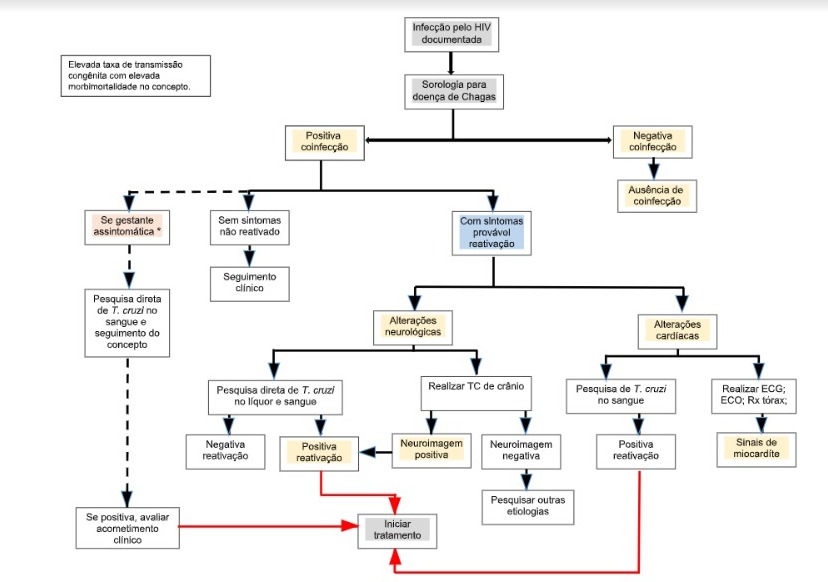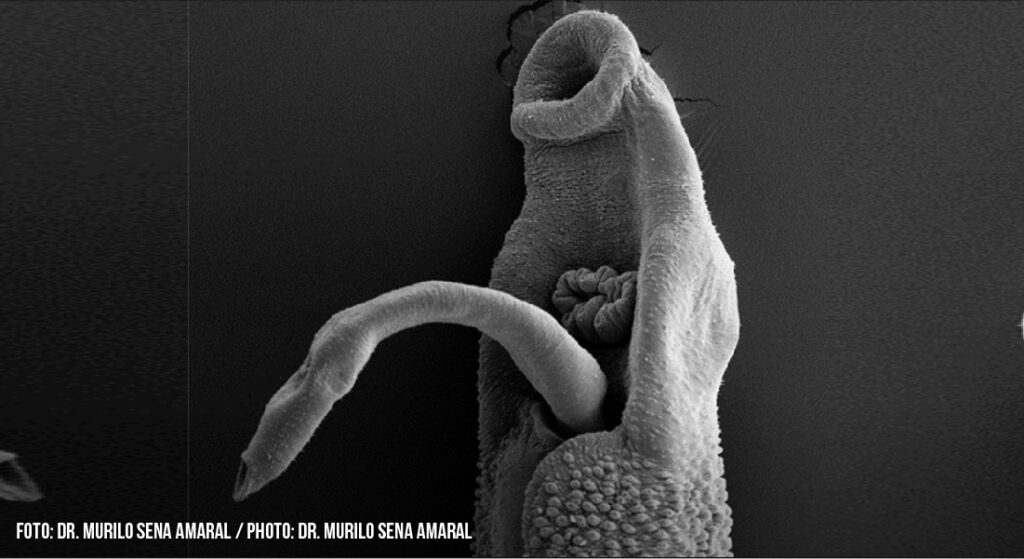
Advances in the clinical management of Chagas disease and HIV co-infection in Brazil
The HIV virus epidemic promoted greater epidemiological surveillance, including serological screening of individuals at risk of infection, favoring the diagnosis of other diseases, such as Chagas disease
12/01/2024
The increase in people living with HIV/AIDS in the Amazon region has overwhelmed the local health system, which is also affected by other endemic diseases, such as Chagas disease, the highest incidence of which is due to oral transmission.
Since the revision of the AIDS case definition by the Ministry of Health in 1992, the relationship between endemic infections and acquired immunodeficiency syndrome (AIDS) has been a crucial public health issue. The recognition of diseases such as Chagas disease, visceral leishmaniasis and paracoccidioidomycosis can translate into opportunistic behavior in individuals with HIV; which encouraged the development of specific clinical protocols and epidemiological surveillance measures. The Congress of the Brazilian Society of Tropical Medicine (SBMT), in São Luiz, Maranhão, in 2000, was a landmark, offering recommendations on the clinical management of co-infection with Trypanosoma cruzi and HIV. These recommendations included the reactivation of Chagas disease as an AIDS-defining condition and the creation of a working group to establish specific criteria for reactivation.
In 2004, the reactivation of Chagas disease was officially recognized as an AIDS-defining condition for compulsory notification, having a significant impact on the international scene. The World Health Organization (WHO) and the Pan American Health Organization (PAHO) endorsed this inclusion, highlighting the importance of national cohorts to evaluate possible additional AIDS-defining conditions. This progressive approach continued with the Brazilian Consensus on Chagas disease in 2005, promoting the development of a manual for diagnosis, treatment and monitoring of T. cruzi /HIV co-infection. The creation of the Brazilian Network for Care and Studies on T. cruzi /HIV Coinfection was an essential step in this direction, expanding internationally.
The Clinical Protocol and Therapeutic Guidelines for Chagas disease were updated in 2018, during the Annual Meeting of Applied Research in Chagas Disease, demonstrating a broader vision that includes other immunosuppressive conditions, not limited to just T. cruzi coinfection / HIV. Epidemiological surveillance of Chagas disease in Brazil was expanded in 2020, incorporating the chronic phase as an event of interest. This resulted in greater potential for identifying disease incidence across all stages and clinical presentations. These advances over the decades have been crucial to expanding access to treatment in the Unified Health System (SUS) and understanding the epidemiological changes in Chagas disease, directly impacting the Brazilian population.
Chagas disease continues to challenge public health in Brazil, especially affecting men in historically endemic areas. The interruption of T. cruzi transmission by the main domiciled vector was a milestone, but challenges remain, including the presence of triatomines capable of colonization, remaining pockets of vectors, and the vulnerability of surveillance efforts. The reactivation of Chagas disease in patients with immunosuppression, such as those infected with HIV/AIDS or undergoing immunosuppressive treatments, is a point of attention. Early diagnosis and specific treatments are crucial to reduce morbidity and mortality in these cases.
Despite advances, there are still challenges in identifying and treating T. cruzi /HIV co-infection. There are no detailed reports on these cases in official databases, which indicates the need for a more comprehensive approach in reporting and monitoring these patients. Joint efforts in the epidemiology, diagnosis and treatment of Chagas disease and HIV have been essential to better understand this complex relationship, increasing awareness and improving the care offered to co-infected patients.
In December 2023, the “ Technical Report” was published. Recommendations for Diagnosis, Treatment and Monitoring of Trypanosoma cruz i-HIV Coinfection and other immunosuppressive conditions – 2023 ”, an update of the previous document published in 2006 by the Brazilian Ministry of Health: “ Recommendations for Diagnosis, Treatment and Monitoring of Trypanosoma cruzi Coinfection /Human Immunodeficiency Virus (HIV) ”, taking into account the changes that have occurred in both diseases, mainly epidemiological, diagnostic and treatment.
According to Dr. Eros Antonio de Almeida, from the State University of Campinas (Unicamp/São Paulo), coordinator of the Network, the initiative to update the Manual was carried out by the International Network for Care and Studies in T. cruzi Coinfection / HIV and other immunosuppressive conditions. He explains that the Network took on responsibility for this task in 2017 and that the document was finalized in 2023 after numerous meetings at SBMT congresses and online. “Coincidentally, the Network was created in the same month as the publication of the document in 2006”, recalls Dr. Almeida.
Starting this month, Dr. Tycha Bianca Sabaini Pavan, from the Oswaldo Cruz Foundation (FIOCRUZ/BA), takes over the coordination of the Network. She states that one of the main objectives in her management will be to consolidate new partnerships, mainly with professionals and health services from different areas, for the implementation of comprehensive health care in the management of T. cruzi /HIV co-infection.
Check out the article “ Guidelines for Trypanosoma cruzi-HIV Co-infection and other Immunosuppressive Conditions: Diagnosis, Treatment, Monitoring, and Implementation from the International Network of Care and Studies – 2023 ”, published in the Revista da Sociedade Brasileira de Medicina Tropical (RSBMT) : https://doi.org/10.1590/0 HYPERLINK “https://doi.org/10.1590/0037-8682-0549-2023″037-8682-0549-2023 .










